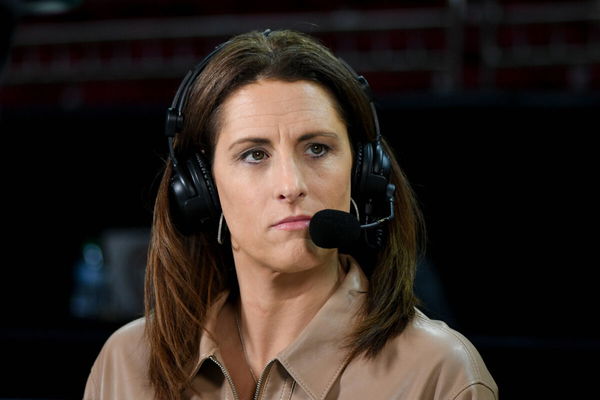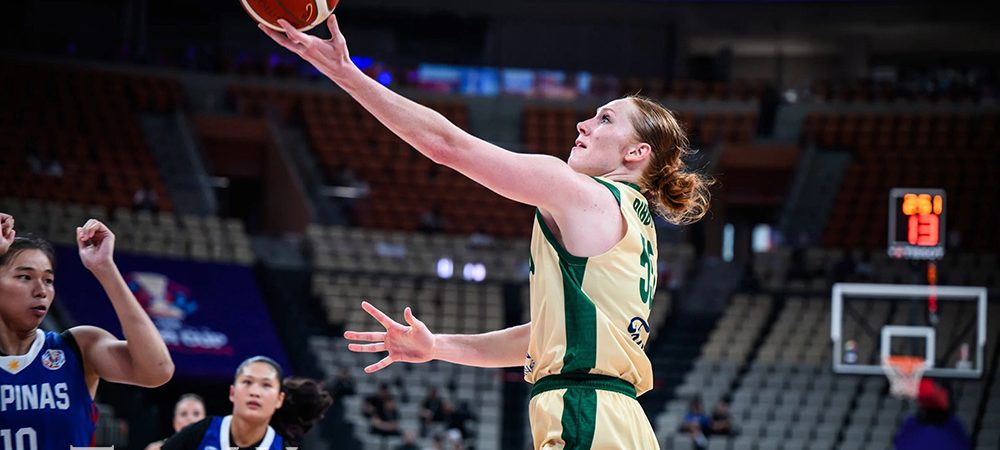In the world of professional sports, some losses sting more than others. They aren’t just marks in the loss column; they are seismic events that shake a team’s foundation and force uncomfortable questions to the surface. For the Indiana Fever, their recent 81-80 home loss to the Dallas Wings was exactly that—a shocking, gut-wrenching defeat that left fans and analysts questioning the team’s direction, and more specifically, its leadership. What was supposed to be a straightforward game against a struggling opponent devolved into a public meltdown, placing head coach Stephanie White directly under a microscope of intense scrutiny.
The final score doesn’t even begin to tell the whole story. The real narrative of the night was written in the third quarter, during a sequence that will live in infamy for Fever fans. The team didn’t just stumble; they utterly collapsed. At home, in front of their own supporters, Indiana allowed the Dallas Wings to go on a staggering 19-0 scoring run. It was a complete system failure. Offense stalled, defense vanished, and the momentum swung so violently in the Wings’ favor that the arena was left in stunned silence. For a team billed as a potential contender, giving up such a run to any opponent is cause for alarm. To do so at home against a team with a record far below .500 is simply inexcusable. It was a display of fragility where strength was expected, a moment of chaos where composure was required.

When a team implodes so spectacularly, the first place people look is the sideline. In this case, Coach Stephanie White’s decisions throughout the game have become the focal point of fan frustration. One of the most glaring and baffling choices involved guard Khloe Bibby. In just 12 minutes of play, Bibby was on fire, hitting all three of her three-point attempts and injecting much-needed energy into the team. She was a spark plug. But just as she got hot, she was pulled from the game. This type of substitution has become a recurring point of contention for those who follow the team closely. Pulling a player with a hot hand defies conventional basketball wisdom and, in this game, it appeared to kill any chance the Fever had of building their own momentum to counter the Wings’ surge.
Perhaps even more damning was the clock management in the game’s final, critical moments. With the game on the line, the Fever had a chance to draw up a play to win it. Teams drill these situations endlessly. Coaches are paid millions to make the right call under pressure. Yet, Coach White waited until a mere 1.7 seconds remained on the clock to call her final timeout. By letting the clock drain so low, she effectively sabotaged her own team’s chances. There was no time for a complex, well-designed play. There was only time for a desperation heave. Kelsey Mitchell, who had a solid 24-point performance, was forced to take an ugly, contested final shot that never had a real chance. A timeout with four or five seconds left would have opened up a playbook of possibilities. Waiting until 1.7 seconds was a tactical failure that put her players in an impossible position to succeed.

This loss is magnified by comments White made earlier in the season regarding the injury to star Caitlin Clark, which she had termed a “blessing in disguise” that allowed the team to “figure out how to play without her.” After a performance like this, that statement rings hollow. The game against Dallas suggested the team has not figured it out. They looked disjointed and unprepared, relying on moments of individual effort rather than a cohesive team strategy. The loss exposed a dependency on star power, not a resilience built in its absence.
Beyond the coaching decisions, the players themselves had a night to forget. The team’s 17 turnovers were a glaring issue, leading directly to 27 points for the Wings. The Fever weren’t just missing shots; they were gift-wrapping scoring opportunities for their opponent. Aaliyah Boston, one of the team’s cornerstones, struggled mightily and was reportedly dominated by Dallas’s Li Yueru in the post. For a player of Boston’s caliber, being outmatched so thoroughly is a significant red flag.
Meanwhile, starter Lexi Hull’s stat line was almost unbelievable: in nearly 25 minutes of court time, she recorded zero points. While Hull is known more for her defense and hustle, contributing nothing on the scoreboard as a starter places immense pressure on the rest of the team to pick up the slack—a burden they were clearly unable to bear on this night.
Even the officiating drew criticism, with many pointing to a perceived favorable whistle for Paige Bueckers and several missed calls that went against the Fever, particularly on plays involving Sophie Cunningham. However, while frustrating, blaming the referees is a flimsy excuse. Championship-caliber teams find ways to win despite bad calls. They don’t allow a few missed fouls to snowball into a 19-0 run and a home loss to an underdog.
In the end, this single game has ballooned into a much larger referendum on the Indiana Fever’s identity and leadership. Is this a resilient team capable of overcoming adversity, or a fragile group prone to spectacular collapses? Was this loss a fluke, a perfect storm of bad decisions and poor execution? Or was it a symptom of a deeper, more troubling issue with the coaching philosophy and in-game management of Stephanie White? As the season progresses, the pressure will only intensify. The loss to Dallas has shattered the illusion of a smooth ride, leaving the team and its coach with everything to prove.


